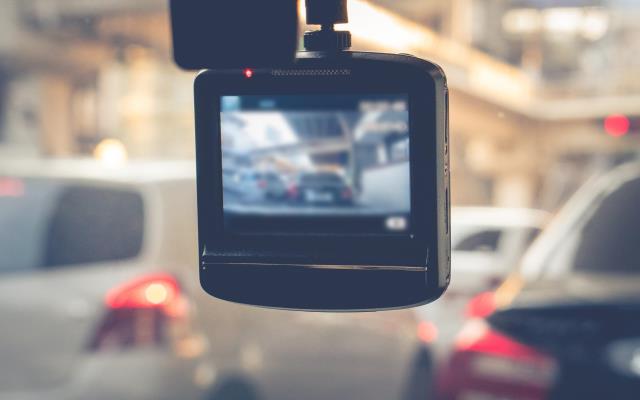In the heat of the moment, you could easily miss what really happened in an accident. A dash cam could be the answer for settling insurance disputes and claims.

What is a dash cam?
A dash cam is a small camera mounted on the dashboard or usually behind the rear view mirror of your car, facing the road. You can have a rear dash cam too. It turns on when you start the engine and records your entire journey.
Some dash cams even have a parking mode, which starts recording whenever an impact is detected. For instance, if someone knocks a wing mirror or hits your car when they're parking. You'll have a better chance of finding out who's responsible for the damage.
There are three main types of dash cam:
- Front view dash cams capture the traffic in front of you.
- Front and back view (or front and rear) dash cams record the view ahead and behind. Investing in dash cams for both views could be worth the extra spend in case you're involved in a rear-end collision.
- Cabin view cameras provide a bird's eye view of the interior of your car. Mostly used in taxis and car services, they can also be useful if you share a car or wish to check your own driving habits.
There are also apps that enable your phone to be used as a dash cam, though a permanent camera is a probably a better device and less of a distraction.
Why install a dash cam?
Dash cams are becoming increasingly popular with motorists for showing who was at fault in a car accident. And if you break down, a dash cam can act as a GPS tracker to help the emergency services find you.
Or if you suspect you've been a victim of a crash for cash fraud, dash cam evidence could prove it's a scam and prevent it happening to others.
The police use dash cam videos in their cars, and the footage they record is often used as evidence when prosecuting bad or dangerous drivers.
Are dash cams legal?
Yes, and you don't need a licence or any other requirements to use a dash cam.
However, you mustn't install the dash cam where it blocks your view. If you have an accident and it's found that your dash cam distracted you or obscured your vision, you could be blamed for the accident.
Also, you have a legal duty to let passengers know if your business vehicle is fitted with a cabin view camera. For instance, if you're a taxi driver or share a company car, and you use your car for family errands. Plus most dash cams record sound and some can video record the inside of a vehicle. If someone else who has use of your car isn't told they're being recorded, you're in breach of privacy laws.
What's the difference between a dash cam and a car blackbox?
A dash cam and a black box (or telematics box) both provide valuable information about your journeys. While the dash cam keeps a visual record, a telematics box holds the data that shows your driving style.
The increasing use of dash cams and black boxes in the future could help insurers in deciding your insurance premium.
Dash cam and insurance claims
Many car accidents aren't clear-cut. If it's your word against theirs, dash cam footage can help to resolve the dispute. And if the other party was at fault, you may not have to pay your excess, or if you've already paid, your excess may be reimbursed.
The evidence could also help protect your no claims discount (NCD). As dash cams become more common, they could prevent theft and deter insurance fraud.
In a 2019 poll of our members:1
- 24% of respondents already own a dash cam, while another 18% are seriously considering buying one.
- 70% agree that any anyone prosecuted because of video footage (which shows they were at fault) recorded by another road user deserves the punishment given to them.
- 69% agree that all police forces should let drivers submit video evidence from dash cams and mobile phones.
Dash cam footage is now accepted by a growing number of insurers – including us – as evidence in claims.
The footage can also help police better tackle problems like road rage or using a phone at the wheel. It's easier to report and prove there's been an incident when there's a clear image of the registration plate in question.
Can a dash cam make driving safer?
This is difficult either to prove or disprove. However, drivers who buy dash cams are likely to be self-aware and want to protect themselves against other road users. Dash cams can provide evidence to report dangerous drivers.
1 Research by Populus among 20,086 AA members, 11–17 June 2019.
Author: The AA. Published 10 March 2017. Updated 16 December 2024.
